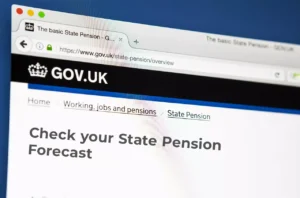Beginning January 2024, HMRC is stringently clamping down taxes on side hustle incomes to prevent tax evasion through the new data-sharing rules. The new tax laws require digital platforms based overseas to disclose their users’ bank information. Many people, from casual Deliveroo riders to Airbnb holiday rentors, may be taxed.
This article explores the new data-sharing rules, how HMRC is implementing the clampdown, who is affected, consequences for non-compliance, how to avoid tax investigation, and other relevant FAQs.
Landlords’ Quick Guide to the Latest HMRC Letter
What Is the New Data-Sharing Rules?
In 2022, the UK signed up to the Organisation for Economic Cooperation and Development (OECD), joining 27 other countries and jurisdictions on a global tax fraud prevention measure. All the participants must adhere to the data-sharing rules that require automatic exchange of information between any country involved, particularly trading income.
The new data-sharing rules will require transparency from any overseas-based eCommerce platform, such as Amazon, Etsy, Deliveroo, Ebay, and Airbnb, and forward their users’ information, especially bank account details, to the country in which the seller is considered a resident, its tax authority, and finally, the seller for tax compliance purposes.

This allows HMRC to closely track people who use overseas-based platforms to trade casual services or goods, which is the easiest potential way to avoid taxes. Previously, the UK could only navigate through the local online marketplace, relying on people to declare their income themselves.
However, with the new data-sharing rules, HMRC is now able to clamp down on both local and overseas-based websites and apps and ultimately pin down self employed individuals who may be deliberately dodging their liabilities.
How Is HMRC Implementing the Clampdown?
In 2023, the UK government allotted approximately £37 million for its wider-scale efforts to prevent every form of tax fraudulent activity. Beginning January 2024, HMRC is specifically clamping down on individuals who earn from side hustles, scrutinising their personal tax information against their authentic income records.

HMRC forwards the data to respective taxpayers to use as a basis if they need to file tax return, which they are required to do if their revenue exceeds the annual trading allowance. Some types of work that may be taxed include the following and more:
- Food delivery through Deliveroo or Uber Eats
- Selling products via Etsy
- Private hire and taxi driving on Uber
- Short-term property rentals through Airbnb
- Freelancing on Fiverr or Upwork
People who earn more than the tax free allowance of £1,000 from any digital platform will be classed as eligible traders and will be considered by HMRC as a small business. See below for further requirements. Some who are simply selling items to declutter one’s basement, for example, may be exempt.
Those under the ‘rent a room’ scheme, on the other hand, have a higher tax-free threshold, set at £7,500 per year. HMRC expects side hustlers to settle their tax liabilities according to the information they receive. If their income is within the annual threshold, they do not need to file self assessment tax return.
As HMRC is closely tracking this category, not optimizing tax returns for self-employed individuals as necessary may get the side hustler flanked up by HMRC. This may mean facing HMRC tax investigations that could lead to mere HMRC penalties or, worse, a criminal investigation and prosecution.
What Do Side Hustlers Need to Do?
When side hustlers exceed the annual trading allowance, HMRC will consider them as traders and will be expected to set up as a business. Eligible traders in any digital platform are obliged to do the following, whichever is applicable:
- Register for self employment
- Register for self assessment
- Submit self assessment tax return
- Pay tax accordingly
If the trader is not yet registered for self employment, they need to do so before they can apply and complete their self assessment tax returns. They may choose to set up as a sole trader, business partner, or a limited company. Usually, many choose to operate as a sole trader as it is the easiest business structure to start with. Then, they can register for self assessment.

On completing self assessment tax returns, filing online is more recommended than using paper tax returns. In 2026, HMRC will be fully implementing the Making Tax Digital for Income Tax Self-Assessment (MTD for ITSA) and VAT, so it is best for any businesses to familiarise themselves with the online filing process as early as now.
Traders who have filed but have underreported or unreported income records will have to amend their tax returns and pay their outstanding tax bill according to the accurate tax calculation. Those who earn below £1,000 in a year do not need to complete a tax return.
However, it is highly recommended that they keep all their crucial records, such as their income sources (e.g., PAYE income, rental income, pension income, etc.), trading expense deductions, invoices, bank statements, receipts, and more.
What Are the Consequences for Non-Compliance?
Some people may only need to amend their tax return and pay their outstanding tax bill if their previous income reports do not match HMRC’s current information, which may mean higher tax bills. Those non-compliant may incur an initial penalty of £100, which, if left unpaid for three months, could increase by £10 per day.
It is best practice for taxed traders to work with tax investigation resolution services (e.g., special agents, lawyer, attorney, etc.) if the worst accusations should happen. This is to reduce the HMRC tax investigation time limit. Getting arrested and facing criminal charges are rare occurrences, but they do happen in some exceptional cases.
Can You Avoid Tax Investigation?
There are a lot of ways toward avoiding common tax pitfalls in personal finance and taxes, but there are no guaranteed means taxpayers can completely avoid tax investigation HMRC. The UK tax authority does targeted investigations into a specific sector at a given period, so almost every individual will likely face HMRC tax investigations at some point. It does not automatically mean a criminal conviction.
Failure to file a tax return even after receiving a nudge letter is certainly one of the triggers, aside from irregularities in reported income figures, frequent errors and late filings of tax returns, HMRC tip-offs, and more. How far back can HMRC investigate and what type of enquiry taxpayers will have to deal with will depend on their unique situations, such as if their tax noncompliance was due to carelessness or deliberate reasons.
Frequently Asked Questions
The UK tax authority first launches a formal HMRC investigation within its departments, notifies the taxpayer about it, the taxpayer submits the required documents, HMRC interviews the legal representative or taxpayer, and finally, HMRC extracts penalties, jury, or any other consequences.
There are four major types: aspect enquiry, random audit, full enquiry, and criminal prosecution investigation.
Self assessments are checked via automation, but HMRC does perform more rigorous compliance checks on a certain percentage of tax returns, most especially including those they are suspicious of.
Can I Earn Money from a Hobby without Paying Tax UK?
Even if it is merely a hobby, once individuals earn through any digital platforms and exceed the yearly trading allowance of £1,000, they will need to report their income, first through self-employment registration, completion of self-assessment tax return, and then payment of self assessment bill.
What Is the Penalty for Not Declaring Income in the UK?
Tax evasion consequences in the UK may range from 6 months of imprisonment to a maximum penalty of £5,000.
How Legend Financial Can Help
2024 is HMRC’s year for major tax evasion measures on digital goods and services sellers. A tax warning for everyone affected: failure to comply with the new tax rules as an eligible trader will pave the way for an HMRC tax investigation that can go back up to an astounding six years! Everyone knows how draining and stressful it is to be investigated by HMRC.
If you have received a letter from HMRC now to settle your self employment registration duties and/or 2022/23 self assessment tax returns, amongst other issues, work on them right away. Legend Financial is here to assist you through every aspect, from choosing your business structure to appealing against HMRC penalties. Talk to one of our tax experts today!
Which Rental Costs Are Allowable and Not?
Reference:
hmrcs-tax-investigations-and-process-penalties-advice/
HMRC side hustle tax clampdown. (6 November 2023). Retrieved from Tax Rebate Services: https://www.taxrebateservices.co.uk/hmrc-side-hustle-tax-clampdown
20reporting,on%20to% 20the%20tax%20authorities.
HMRC rolls out ‘side hustle tax’ for online sellers on eBay, Vinted and more. (7 January 2024). Retrieved from Independent: https://www.independent.co.uk/life-style/hmrc-tax-side-hustle-online-sellers-ebay-b2474542.html
hmrcs-income-tax-changes-to-clamp-down-on-side-hustles
20ceremony%20held,the%20 OECD%20Model%20Rules%20for












